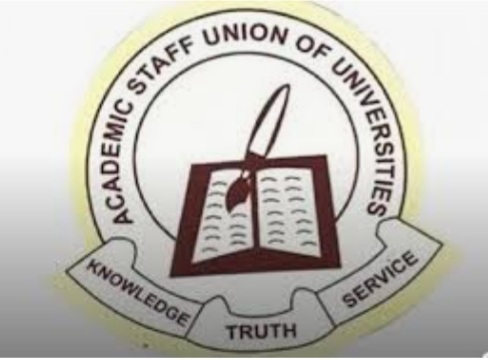Tyrants History : 5 fearsome dictators and ruthless leaders in world history
Writer : Onajoko Deborah (AKA Derby County)
Heads up: These posts are set in pages, down below you will either find a link to previous page or next page.
Joseph Stalin
Page 4
Originally known as Josef Vissarionovich Djugashvili, Joseph Stalin was a Soviet politician, political theorist and a revolutionary who led the Soviet Union from 1924 up until his death in 1953 . Before this, he held the post of secretary of the communist party of the Soviet Union from 1922-1952, and finally the post of chairman of the council of ministers of the Soviet Union (1941-1953). He made a remarkable impact on the Soviet Union and transformed it from a society of peasantry to a highly military and industrial power, however, his reign was far from a pleasant one. Stalin was a skilled tyrannical criminal master mind who abhorred any form of disagreement against, or opposition to his leadership.
Born on the 18th of December 1878 or 6th of December 1878( according to the ancient style Julian calendar), Stalin was originally born as Josef Vissarionovich Djugashvili, born into poverty to an alcoholic shoemaker father, who loathed and maltreated him, and a laundress mother who doted on him, as he was her only offspring . He was born in Gori, Georgia . Growing up, Stalin’s childhood wasn’t one most children would dream of, as he was subjected to abject poverty and maltreatment, all these factors added up to his contacting of the small pox disease at a young age, which resulted to his life long facial spots.
Being from the provincial Georgian town of Gori in the Caucasus, which was then a Russian colony, Joseph spoke only Georgian at home, and had to learn Russian, which resulted in him speaking of the language in a guttural Georgian accent, just as Napoleon had spoken badly accented French due to his Italian and Corsican accent. Djugashvili would later on secure a scholarship at a seminary in the city of Tbilisi to study priesthood in the Georgian Orthodox Church, as his mother wished very much for him to become a priest, although he was said to have lacked the priestly features and demeanor.
His stay in the seminary was however cut short by his expulsion in 1889 for missing of his exams, he however claimed it was as a result of the marxist propaganda which he had harbored in mind ever since he started to busy himself with the works of Karl max, which made him interested in the revolutionary movement against the Russian monarchy . However in 1899, Djugashvili would briefly secure a job as a clerk in the Tiflis observatory. This is recorded to have been the only paid employment Stalin was noted to have outside politics.
In his 30s he would however take on a new identity by changing his name from Josef Vissarionovich Djugashvili to Joseph Stalin, he would also make amends to his date of birth and change the date to the 21st of December, 1879. Stalin quickly got involved in various criminal activities such as bank heist and the likes, from which he would later gather enough money to fund the Bolshevik party. The young Stalin faced his fair share of imprisonments and exile over the years from the periods of 1902 and 1913 in Siberia , which gives testament to the rough and bumpy life lived by the communist dictator himself, it is no wonder that he would possess zero qualms at making the life of others miserable and hard as well. In 1904, Stalin would take to marriage a pious Georgian seamstress known as Ekaterina Kato Vanidze, who would die three years later.
Ekaterina would leave behind hers and Stalin’s first son Yakov (Jacob) of whom Stalin claimed to be a weakling and possessed a strong dislike for. Stalin would later show the lengths of his dislike towards his son when he would refuse to make a German trade for the life of Yakov after being captured by the German troops. As a result, young Yakov died in captivity of the Germans . In the year 1918, Stalin would later get married to a second wife by name Nadezhda “Nadia” Alliluyeva, who bore him a son and daughter by name Vasily and Svetlana Alliluyeva . Vasily his son would later go on to deteriorate as an alcoholic after rising to unmerited high rank in the Soviet Air Force, while Svetlana, who served as an outlet for her fathers ever changing affection and hot temper would later on deflect to the United States of America in1967, after her fathers death, while Nadezhda their mother was said to have taken her own life in 1932 while in her 30s .
In 1912, Stalin would later be appointed by Vladimir Lenin (who at that time had been sentenced to exile in Switzerland) to serve on the first central committee of the Bolshevik party. Three years later in November,1917 the party would later seize power during the Russian revolution. In 1922, the Soviet Union was founded with Vladimir Lenin as the first leader. Unfortunately, over the years Lenin and Stalin would fall into differences over certain issues which would result in disagreements and create bad blood between the two . Lenin would later die on the 21st of January 1924 at the age of fifty three. In the late 1920s, Stalin would later go on to launch his infamous five year plan, aimed at transforming the Soviet Union from destitute and peasant society into an industrial big shot. This five year plan would however usher in the execution of millions of farmers who failed to cooperate with Stalin’s vision.
Joseph Stalin would later go on to initiate the”Great purge”, an action taken by the dictator to purge his military of many of his best officers and intelligentsia by execution, this act would later on serve as a set back to the dictator as he was deprived of many competent leaders in the world war II. On the eve of the world war in 1939, Stalin would sign the Nazi Soviet non aggression treaty with Adolf Hitler, this treaty was as a means to divide Poland between Germany and the Soviet Union. Adolf Hitler would later on go on to break this treaty in June 1941 through the operation Barbarossa .
After a nervous breakdown, Stalin would however manage to curtail the situation and stop the German invasion. Even after receiving assistance from the west with the likes of president Roosevelt, Winston Churchill, president Harry Truman who always referred to Stalin as little squirt, because of his small height, amongst some others, Stalin would later develop a sour relationship with the west, which would precipitate the “Cold War”, lasting until the 1990s. Stalin was also noted to be responsible for about 20 million deaths of soldiers and civilians during the World War II, he has also been held responsible for the Soviet famine of 1932-1933, which struck Ukraine and in which many lives were lost, this misfortune would later be known as the “Holodomor” , a combination of two Ukrainian words meaning “starvation” and “to inflict death”, about 4 million men, women, and children were believed to have starved to death during this time. Although Stalin was reputed for numerous terrible deeds, he however achieved a lot for the Soviet Union, such as playing an important role in securing a seat for Russia in the United Nations security council, he also increased the Soviet Union’s total output to the point where only that of the United States could surpass it .
Health care and education also received a tremendous boost as many young people had easy access to university education , the field of health care also advanced as Russians had unlimited access to health care, even the spread of some feared diseases of that time like cholera and malaria dropped to an impressively low number. Stalin was also an advocate for the education of the girl child, women where treated and given equal employment opportunities and jobs. On the 5th of march, 1953 Stalin died of a stroke, he was 74 years of age at the time of his demise. His body was embalmed and preserved at Lenin’s mausoleum in Moscow’s red square until 1961, when it was removed and buried close to the kremlin walls, as a part of the “desalinization” process, initiated by Nikita Khrushchev (1894-1941). Stalin’s successor.
Writer: Onajoko Deborah
Link to Page 1: Napoleon Bonaparte
Link to Page 2: Benito Mussolini
Link to Page 3: Adolf Hitler
Link to Page 4: Joseph Stalin
Link to Page 5: Mao Zedong
Link to Page 6: Kim II Sung
- ” It is humiliating to remain with our hands folded while others write history” — Benito Mussolini .
- “Obstacles do not exist to be surrendered to, but only to be broken.” — Adolf Hitler.
- “It is not heroes that make history but history that makes heroes” — Joseph Stalin.
- “In times of difficulties, we must not loose sight of our achievement” — Mao Zedong.
- ” Everything is decided by a person’s thought, and if he is ideologically motivated there is nothing he cannot do” — Kim II Sung.


